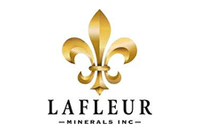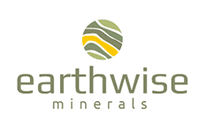Down markets are notoriously rife with good deals, and nowhere is this truer than down under in Australia. In this interview with The Gold Report, Rick Rule, founder of Sprott Global Resource Investments, explains how he takes advantage of Australia’s small, volatile market and investors’ ethnocentrism to find high-quality companies whose shares are, in his opinion, going for a steal.
Source: Karen Roche of The Gold Report (8/5/13)
Down markets are notoriously rife with good deals, and nowhere is this truer than down under in Australia. In this interview with The Gold Report, Rick Rule, founder of Sprott Global Resource Investments, explains how he takes advantage of Australia’s small, volatile market and investors’ ethnocentrism to find high-quality companies whose shares are, in his opinion, going for a steal.
The Gold Report: You recently said that this is your fourth cycle in a commodity sector in your 40-year career. Where are we in this current cycle, and how do you determine that?
Rick Rule: The bottom is usually marked by a two- or three-week period of capitulation selling followed by a standoff, where both the buyers and the sellers are exhausted. We haven’t seen that yet. We’ve had two or three different periods with a couple of days of capitulation selling but not a two-week period as we saw in 2000.
I wouldn’t be surprised if the downturn was four years, which suggests we have a year and a half to two years before we clean out the excesses. The junior sector is substantially overpopulated with companies, managers and agents. There needs to be a major cleansing over the next 18 months.
TGR: Will it be more cleansing or more mergers and acquisitions?
RR: Cleansing. Most of the walking dead juniors, the zombies, are a bunch of liabilities disguised as public companies. Their assets are liabilities; their financials are liabilities; mostly their managements are liabilities. It’s wonderful. Every 5 or 10 years you have this major reset in the junior sector. Although it’s extremely unpleasant to go through, it’s very healthy.
A lot of money can be made in deep and cataclysmic market downturns, not just on the rebounds. People do egregiously stupid things out of panic at the bottom. They engage in capitulation selling with no regard to value. In that situation, you don’t need to buy in anticipation of news, because good news comes out and there’s no market reaction to it. You can wait for the news to get out, analyze and digest it and then buy it. That’s as much fun as you can have in this business.
TGR: Is this basically buy and hold? Find the good values now and ride through this down market?
RR: That has always been my technique. For me a market is just a facility to buy and sell assets. Juniors rise in value when they answer a series of unanswered questions; that takes time. I never go into a speculation with a planned timeframe of fewer than 18 months. I’m 60 years old now—the idea that I have to hold a stock for 18 months doesn’t give me apoplexy. I’m on my 31st cycle like that.
When I interview a junior I ask, “What are you going to do with the money you’re asking me for? Tell me how this $3 million is going to make the company worth twice as much.” About 70% of the time the junior doesn’t have an answer. That makes my life really easy. I just get up and leave.
TGR: That’s a pretty quick litmus test.
RR: It’s as though somebody is going to drive from Los Angeles to San Francisco and starts driving east. Those juniors don’t have a plan. They don’t have a map. They plan to pay down payables and then slam a few holes in the ground, and if there’s good fishing nearby, they’ll take advantage of that.
TGR: You’ve been focusing on Australia, which you’ve said is cheaper than North America and has better quality.
RR: It’s true in both cases. This is a wonderful topic because I can get the Australians and the North Americans mad at me at the same time. Compared to the North American market, Australia’s is very small and much more volatile. When outside money floods into it, the valuations explode and the market goes higher faster. When outside money pours out, the market contracts ridiculously.
The Australian equities market becomes very ethnocentric in a bad market. Australians focus within Australia and tend to sell non-Australian things more than Australian things. We like to go into Australia in bad markets and find the companies that have done a good job overseas but have been sold because of this ethnocentricity. We try to put equity into existing Australian companies and be supportive shareholders.
The Australian exploration community is extremely competent overseas, particularly in Africa. They’re used to Archean terrain and harsh climate conditions.
TGR: Can you highlight some of the companies you’re investing in that have projects in Africa?
RR: We’re following 70 or 80 exploration plays in Africa. Most are too low grade to ultimately attract our attention, but seven or eight deposits will almost certainly become mines.
With the number of companies active in West Africa, there’s going to be a fairly active consolidation. In several situations, we think we’re going to get what we laughingly refer to as a “double bump”: the property will prove itself up, and then the company that has the property will be acquired, and then the newly acquired property will provide a growth profile to the acquirer. You get a bump for being acquired and a bump for the earnings visibility of the people who acquired it.
This theme worked well for us in the early 1990s and coming out of the 1998–2002 market. Our hope is that West African consolidation over the next five years will give us several double, triple or quadruple bumps.
TGR: Australia-based companies in the Sprott portfolio that are doing business in West Africa include Papillon Resources Inc. (PIR:ASX), Birimian Gold Ltd. (BGS:ASX) and Perseus Mining Ltd. (PRU:TSX; PRU:ASX). Are those the types of double bumps you’re looking for?
RR: There’s a range of discussions there. Papillion is a first-rate deposit. It’s done a superb exploration job, and its deposit has size and grade. It could get over the 5 million ounce (5 Moz) market; it certainly has 3 Moz–plus potential. It could make a lot of money for its ultimate acquirer.
Birimian and Hummingbird Resources Plc (HUM:AIM) are attractive in their own right. They’re not as large as Papillion, but the potential profitability of their deposits stands out. Perseus has had operational failings that have caused people to reflexively sell them out of disgust. They’re just too cheap—the market is valuing their exploration and development assets at zero, and we don’t think they’re worth zero. A year and a half ago I would have said that Perseus would be a consolidator, but now I expect it will be consolidated because it’s selling for 80% less than it did 18 or 19 months ago.
West Africa is superior exploration terrain. The amount of money being spent there and the quality of the people exploring there could yield the best exploration results of any region on the globe. It has a lot to give up, and we think it will give it up this cycle. Three or four players will come to dominate the sector. That theme has worked for us in Mexico, in Peru and in Nevada. We are confident it will work for us in West Africa.
TGR: Because Australia is such a small and volatile market, is it challenging for companies listed there to raise money? Do they start cross listing?
RR: They don’t necessarily need to cross list. Really good projects will finance themselves. We recently participated in a small financing of about $12 million for Hot Chili Ltd. (HCH:ASX), an unfortunately named copper explorer in Australia that’s mining in Chile. To raise that money, it talked to the top five people on its shareholders register. It didn’t have to go to the brokers or the institutions.
If Papillion needed to raise more money, I expect it wouldn’t have to engage the Australian broker/dealer community. It could engage the top 10 names on its shareholder register.
TGR: I noticed that all the major mining areas in Australia are in New South Wales or Western Australia. Is it critical that those locations are part of your investment strategy for Australia?
RR: We like the whole continent—the Gawler Craton and South Australia. We like New South Wales and Queensland, the eastern goldfields, a lot. We still like the iron oxide copper-gold exploration opportunities in Australia. We like the Archean terrain in eastern Australia and the western Australia goldfields. The Australian continent has an unusually generous mineral endowment.
Our existing participation is limited to the areas where people deliver good drill holes and the Australian valuations are insufficient. In other words, it’s limited to where we see bargains. We like what Peel Mining Ltd. (PEX:ASX) has been achieving up at Cobar. Cobar is familiar territory for us, which is an advantage.
TGR: Do you think Australia-based companies will get a bump up if Kevin Rudd comes back as prime minister and alleviates the mining tax?
RR: The mining industry has had a good 10 years in Australia and has unfortunately bragged about its good fortune so much that Australians think there’s more money to steal from miners. Similarly, wages are sticky. People competed aggressively for workers in Australia, and workers’ wages did extraordinarily well, tripling in many instances. It will take two to three years for those expectations to diminish—expectations on the part of the issuers, suppliers, workers, managements and government-sponsored entitlement beneficiaries.
TGR: There is a perception that Australia’s growth is linked to China’s due to the proximity of the two. If China’s growth is slowing, does that mean Australian mining could potentially slow?
RR: The perception that Australian growth is tied to Chinese growth isn’t really a perception—it’s reality. China has several problems, such as its weakness in the economies to which it exports, the misallocation of capital internally and the opacity of the lending and capital allocation system. China will have a rough 18 to 36 months working through the capital misallocation. The other part of me says that 5% or 6% growth from a huge base like that means a recovery is inevitable.
Looking at the incredible success of the Chinese diaspora globally, you see that as people become freer, they become richer. I think the process is underway and inescapable in China. You don’t put the toothpaste back in the tube. It’s just the way it works.
TGR: Australia has been getting a lot of press for rare earths, particularly heavy rare earths. Could it complement or overtake the Chinese production of rare earths?
RR: It has the ability to complement Chinese production. If the Chinese were to raise the rare earth prices, production would increase in South Africa, Congo, Australia and any place with Archean rocks and pegmatites. The Australians are leaders in Archean geology.
TGR: Australia is becoming a hotbed for oil and gas exploration. Are you looking at that sector?
RR: We certainly like Australian geology and Australian geologists, but we haven’t found the opportunity in conventional energy in Australia that we have found in mining there.
TGR: You are heading down to do a variety of presentations in the coming months. What message do you hope your audience takes away?
RR: I don’t know that I have an awful lot to say to conference attendees other than bear markets cause bull markets and that these are wonderful times if you’re an investor as opposed to a momentum player.
My message to the financial services industry and to the issuers in Australia is that while capital markets may be shut, Sprott is not. We are able to mobilize our own capital, and we have clients and partners with the same capabilities and outlook that we have.
TGR: Can a regular investor who is not accredited take advantage of this extreme opportunity for financing, as Sprott is doing through private placements and private equity, by buying into Sprott funds?
RR: That depends on the domicile of the investor and his or her personal circumstances. Of course, we would solicit discussions that would lead to people participating with us or owning us. Our U.S. brokerage operation offers resource investment services to investors with portfolios of all sizes.
TGR: So if investors are interested, what should they do?
RR: The easiest way is to go to our website, https://www.sprottglobal.com. I encourage readers to click on the Sprott’s Thoughts tab and take advantage of the free subscription. That’s a free daily publication that draws information analysis and paradigm from 26 of Sprott’s thought leaders. The best way to get to know us is to listen to us on a daily basis for free.
TGR: Rick, I appreciate your time.
Rick Rule, founder and chairman of Sprott Global Resource Investments Ltd., began his career in the securities business in 1974. He is a leading American retail broker specializing in mining, energy, water utilities, forest products and agriculture. His company has built a national reputation on taking advantage of global opportunities in the oil and gas, mining, alternative energy, agriculture, forestry and water industries.
DISCLOSURE:
1) Karen Roche conducted this interview for The Gold Report and provides services to The Gold Reportas an employee. She or her family own shares of the following companies mentioned in this interview: None.
2) The following companies mentioned in the interview are sponsors of The Gold Report: None. Streetwise Reports does not accept stock in exchange for its services or as sponsorship payment.
3) Rick Rule: I or my family own shares of the following companies mentioned in this interview: Papillon Resources Inc., Peel Mining Ltd., Hot Chili Ltd., Perseus Mining Ltd., Hummingbird Resources Plc and Birimian Gold Ltd. I personally am or my family is paid by the following companies mentioned in this interview: None. My company has a financial relationship with the following companies mentioned in this interview: None. I was not paid by Streetwise Reports for participating in this interview. Comments and opinions expressed are my own comments and opinions. I had the opportunity to review the interview for accuracy as of the date of the interview and am responsible for the content of the interview.
4) Interviews are edited for clarity. Streetwise Reports does not make editorial comments or change experts’ statements without their consent.
5) The interview does not constitute investment advice. Each reader is encouraged to consult with his or her individual financial professional and any action a reader takes as a result of information presented here is his or her own responsibility. By opening this page, each reader accepts and agrees to Streetwise Reports’ terms of use and full legal disclaimer.
6) From time to time, Streetwise Reports LLC and its directors, officers, employees or members of their families, as well as persons interviewed for articles and interviews on the site, may have a long or short position in securities mentioned and may make purchases and/or sales of those securities in the open market or otherwise.
Streetwise – The Gold Report is Copyright © 2013 by Streetwise Reports LLC. All rights are reserved. Streetwise Reports LLC hereby grants an unrestricted license to use or disseminate this copyrighted material (i) only in whole (and always including this disclaimer), but (ii) never in part.
Streetwise Reports LLC does not guarantee the accuracy or thoroughness of the information reported.
Streetwise Reports LLC receives a fee from companies that are listed on the home page in the In This Issue section. Their sponsor pages may be considered advertising for the purposes of 18 U.S.C. 1734.
Participating companies provide the logos used in The Gold Report. These logos are trademarks and are the property of the individual companies.





